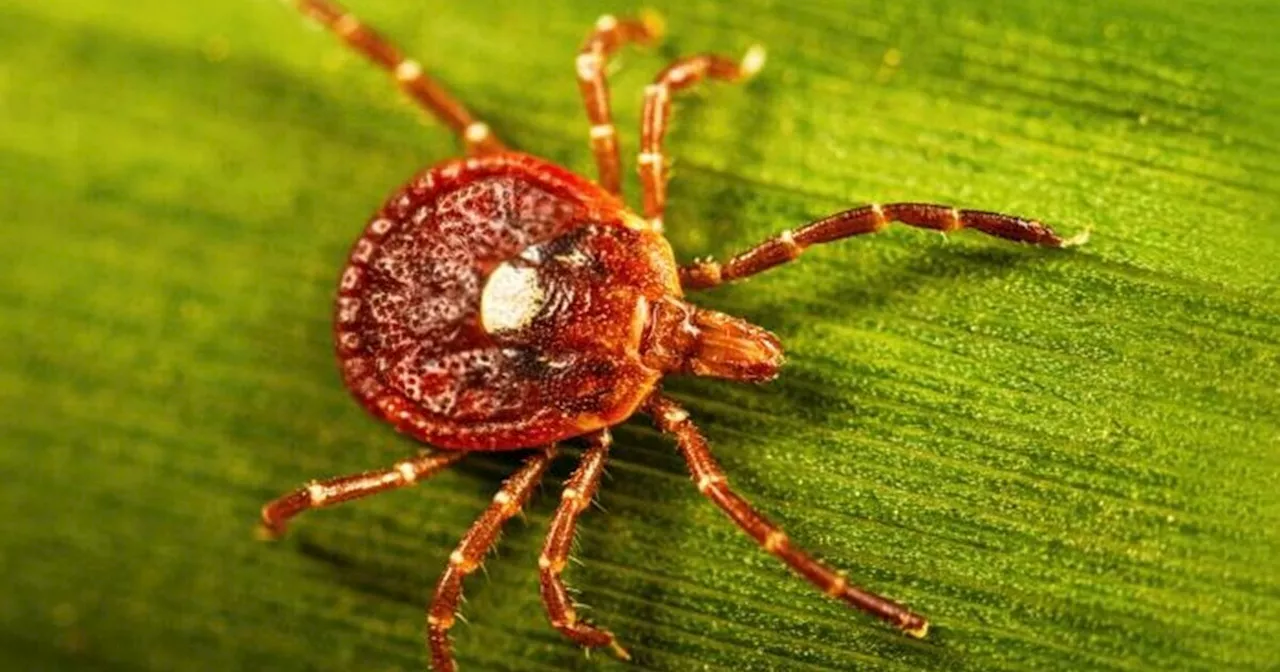Researchers have reported the first documented death linked to alpha-gal syndrome, a rare but serious condition that causes an allergy to red meat, triggered by bites from the lone star tick. The case involves a 47-year-old pilot from New Jersey, who collapsed after consuming a hamburger at a barbecue in 2024. This tragic incident emphasizes the growing concerns surrounding tick-borne diseases and their potentially life-threatening consequences.
The findings were shared in a recent report by researchers at the University of Virginia School of Medicine. The pilot began feeling unwell approximately four hours after eating the hamburger. His son found him unconscious in the bathroom, surrounded by vomit. Despite immediate medical assistance, he was pronounced dead upon arrival at a local hospital. An autopsy later revealed the cause of death to be a sudden unexplained event, underscoring the severe nature of alpha-gal syndrome.
This case is significant as it highlights the challenges of diagnosing this condition. The pilot had previously experienced symptoms, such as abdominal discomfort and nausea, after consuming red meat, but these episodes were often mistaken for food poisoning. His wife noted that they did not seek medical attention for these symptoms, which can complicate the recognition of alpha-gal syndrome.
In the investigation following his death, a blood sample showed evidence of an allergic reaction, and it was discovered that the pilot had suffered multiple bites from lone star ticks. These bites, initially thought to be from chiggers, are believed to have triggered the development of his allergy. The alpha-gal molecule, found in mammals and transmitted through tick bites, can cause severe immune responses when red meat is consumed.
Experts are increasingly concerned about the rising prevalence of lone star ticks in various regions. The Centers for Disease Control and Prevention (CDC) has reported a significant increase in cases of alpha-gal syndrome, estimating that as many as 450,000 people in the United States may be affected. This figure far exceeds the number of confirmed cases, highlighting the potential for underdiagnosis.
The delayed recognition of alpha-gal syndrome, combined with a lack of awareness among both patients and healthcare providers, poses a growing public health challenge. The pilot’s death serves as a stark reminder of the condition’s severity and the critical need for early diagnosis and management.
Alpha-gal syndrome, often referred to as red meat allergy, manifests as an allergic reaction to the sugar molecule alpha-gal. The CDC’s findings suggest that the actual number of cases may be even higher than previously believed. The American Gastroenterological Association recommends testing for this syndrome in patients with unexplained gastrointestinal symptoms, such as nausea, diarrhea, and abdominal pain.
The increasing presence of lone star ticks, the primary vector for alpha-gal syndrome in the United States, raises further concerns. Factors such as rising temperatures and habitat changes are believed to contribute to the northward migration of these ticks, exposing more people to the risk of developing the allergy.
Preventative measures are crucial in mitigating the risk of tick bites. Experts advise using insect repellent, wearing protective clothing, and avoiding known tick habitats. If bitten, timely removal of the tick is essential. Keeping the tick in a plastic bag allows healthcare providers to identify the species and test it for diseases, which can aid in early intervention.
Currently, there is no vaccine for alpha-gal syndrome. The primary management approach involves dietary changes, specifically avoiding red meat. The pilot’s unfortunate death highlights the urgent need for increased public awareness about alpha-gal syndrome, the importance of early diagnosis, and the education of healthcare professionals regarding its symptoms and management strategies.
As cases of alpha-gal syndrome continue to rise and the ticks that transmit it spread geographically, addressing this public health concern becomes increasingly imperative. The pilot’s story serves as a poignant reminder of the potential severity of this allergy and the critical need for proactive measures to protect those at risk.







